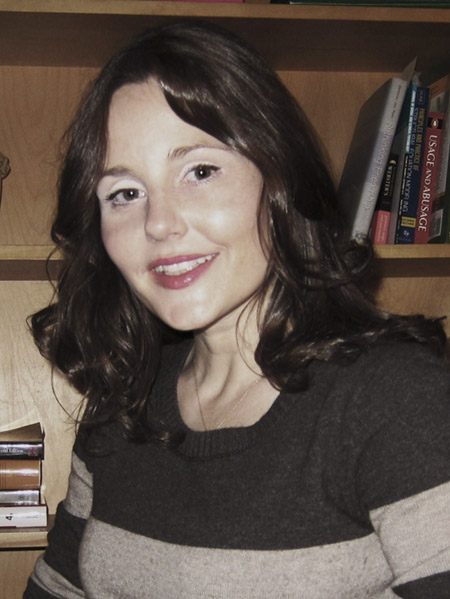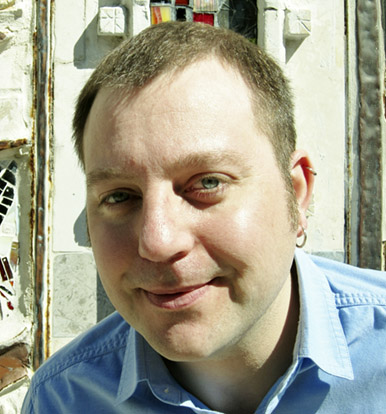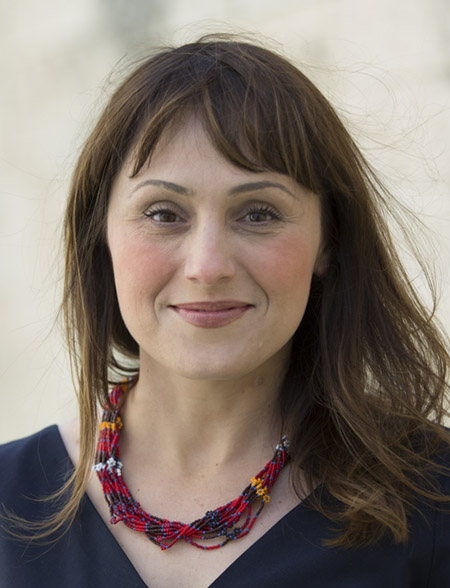
Dr. Cheryl Harasymchuk

Dr. John Zelenski

Dr. Katherine Starzyk
Dr. Cheryl Harasymchuk, Dr. Katherine Starzyk, and Dr. John Zelenski, Social and Personality Psychology
Social and Personality Psychology is really a description of two different disciplines that are inextricably linked. We spoke to Dr. Cheryl Harasymchuk, Dr. Katherine Starzyk, and Dr. John Zelenski about the contentious history and harmonious present, and the work they do to influence us all to be better.
Social and Personality Psychology
Dr. Cheryl Harasymchuk is an associate professor in the department of psychology at Carleton University, where her research focus on relationships from a social-psychological perspective. She is the Chair of the CPA’s Social and Personality Section. Dr. Katherine Starzyk is an associate professor of social and personality psychology at the University of Manitoba, where she studies how people respond to social injustice. Dr. John Zelenski is a professor of psychology at Carleton University, where personality psychology is the longest-running of his many research areas.
If you are following along with our Psychology Month series, you might remember Dr. Zelenski as having also participated in our spotlight on Environmental Psychology. As with so many psychological disciplines today, there is a huge amount of crossover between social/personality psychology and other fields of study.
“My first work in environmental psychology was to try to measure this individual difference that we call ‘nature-relatedness’. It refers to the degree to which people feel connected to, and part of, nature and the environment. The way we think about it is almost like a social relationship, and so we borrow some techniques and measurements from social psychology. Since ‘nature-relatedness’ is related to good things, like happiness and sustainable behaviours, it would be nice to increase it.”
This mirrors something that’s going on in personality psychology more broadly. 20 years ago the field was trying to sort out which were the most important personality dimensions. There of course thousands of potential individual differences, so they were trying to make some sense of it. That work remains ongoing, but personality psychologists have come to at least a bit of a consensus in the past couple of decades. Now they can start to ask questions about how behaviours and traits change over time, or how to increase desirable traits and appeal to some kinds of people. Says Dr. Zelenski, “I feel like personality psychology is getting on to these more interesting questions of substance and change and stability, rather than just figuring out what we’re talking about.”
There is a difference between ‘personality psychology’ and ‘social psychology, and at one point the two were not very sympatico. Some say (like Dr. Zelenski) that it was akin to a sibling rivalry. Others say it was a battle of extremes. Either way, there has been a rapprochement over the years to the point where the two now form part of the same team and are in many ways inextricably linked. Like when Nas and Jay-Z finally stopped writing diss tracks to each other in their songs, and joined together to make beautiful music on the (in-aptly named) ‘I Declare War’ tour. Dr. Harasymchuk makes the distinction.
“Psychology is the study of why and how we behave as we do. Social psychologists study how people are shaped by the people around them and the larger environment. And personality psychologists study how to define and measure the important differences between people – ranging from genes to cultures.
In the beginning there were some extreme positions, where two camps were at odds. One said it was only the context, the other said it’s only how you were born that would shape your behaviour. Since that time there has been a lot of evidence that it isn’t one extreme or the other. As an example, I study relationships from a social-psychological perspective, which means I’m mainly interested in how a person’s partner, or best friend, shapes their behaviour. But in all my research, I also examine individual difference variables. Situations depend on that person’s personality, and how they might respond to their partner or best friend. If they have a history of responding very negatively to stressors, then in the context of a relationship where they’re having a fight, their behaviour might be more negative and exaggerated than it would be for someone better able to cope with their emotions.”
The integration of social and personality research has many tangible benefits. Dr. Starzyk has worked with collaborators and partners to increase government motivation to act in response to the First Nations clean water crisis. The group includes social/personality psychologists, sociologists, economists, legal scholars, soil scientists, and more, all thinking about ways they can apply pressure to alleviate the crisis, and all supporting the work of the advocate organizations who are the public face of the effort. It’s a multi-pronged approach, where the social and personality psychologists are the ones working on influencing public opinion.
“Some of our research is on understanding things like when, and why, people will start supporting better access to clean water for First Nations in Canada. Or at what point will people become concerned about racism, or the things that are necessary to move (re)conciliation forward. Even in this context, where we’re studying things that seem very group-based, this year we’re looking at how most of the individual personality variables predict each of these things together. So once again we’re dealing with a real integration of the social and the personality science. While we can set up frames that are more likely to make people act and be concerned about these things, we’re also interested in understanding who those frames will influence more, who can we move more easily, and maybe who requires a different approach. It’s taken a long time, but the intersection is finally here!” Integrating her work in psychometrics and intergroup relations, in February 2022, the Canadian Reconciliation Barometer has released their first report (https://reconciliationbarometer.ca).
Another big shift in the last couple of decades has been toward a different outlook on the way the science itself is conducted. Dr. Harasymchuk explains,
“One of the major changes that has impacted psychology in general, as well as social and personality psychology, is a greater emphasis on promoting practices in our research through transparency and replication. It’s more common in our field now to see researchers pre-register their study hypotheses. Meaning that before they start conducting the study and collecting data, they state publicly what they expect the study to find.
Related to that is the shift we’ve seen toward a more collaborative science. If you need to get enough participants to be more confident in your results, you need to pool across many labs and resources. We were always committed to doing good science, but in the last 20 years we’ve learned so much about the importance of replication and strong sample sizes.”
The work of social/personality psychology has not only undergone many changes in the last 20 years, but it has also contributed enormously to the changes we see around us in our everyday lives. Any ad you see online or on TV, any social media platform or interactive app, is built around the way people think. Dr. Starzyk says she sees this directly quite often, “Facebook and Google and ad companies explicitly recruit graduates from social and personality psychology – we see their booths at our conferences!”
While a lot of what surrounds us is informed by social and personality psychology, our own behaviours can be explained (or perhaps studied) by researchers in the field – every decision we make, every action we take, is probably of interest to a psychologist somewhere! Dr. Harasymchuk offers an example.
“There is a subdiscipline that concerns judgement and decision-making. It’s not about the objective things we experience in a situation, it’s about our perception of them. Our perception can shape whether we decide to drive an extra ten minutes to a gas station where we know we can save a few cents per litre rather than going to the station closest to us.”
The role of social and personality psychologists has come under a bit more scrutiny this past year, as they are at the forefront when it comes to finding ways to get people to adhere to public health measures. It is certainly not as simple as ‘craft your message this way and everyone will wear a mask and get vaccinated’. It’s more about what kind of messaging, imagery, and rhetoric will encourage the most people to take the necessary precautions. Dr. Zelenski says that this process is certainly a complicated one.
“In one of my graduate seminars just last week, we were considering these competing articles in a very high-profile journal, and one of them said ‘here are all the things social psychologists have learned, apply it to the pandemic!’ and the other one was from a group that contained mostly social and personality psychologists who said ‘wait a second there – we’ve done a ton of studies, but mostly on students. This science might not be game-day ready just yet.’ Then between those, you have politicians and policy-makers who have to make a decision right now who are demanding to know if this science is helpful or not. So even within the field, I think you have some debate. We’re certainly asking and addressing those questions, and while our advice is not as good as it might be five years from now, a lot of people would say that at least it’s good enough to be helpful in the moment.”
Dr. Starzyk says a big part of the difficulty is maintaining peoples’ trust in government in order to get them to trust the public health measures being advocated by that government.
“Governments don’t always translate research into policy, and they behave really inconsistently. We know a lot about what causes trust in government. When they say you can go mask free wherever you like, and then three days later have a different guideline, people start to question whether that policy is grounded in some good reasoning.
Even though we know the contact issue is not so important, and you don’t need to sanitize everything in your home anymore, one of the reasons governments were reluctant to repeal that kind of advice is because then people might trust them less. I feel that’s probably not so wise, you want to go with what’s the best science at the time and avoid having people spend money on things they don’t need.”
The science of personality and social psychology has come a long way, but remains a little misunderstood among the general public. Hopefully this will change going forward. Social and personality psychologists help us address racism, behave in more environmental ways, and try to convince us to wear masks and get vaccinated. To live better lives.
